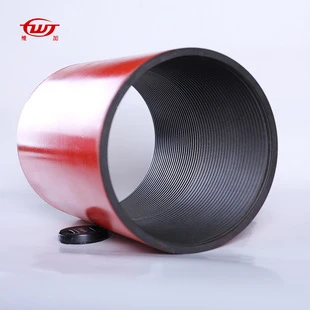- Afrikaans
- Albanian
- Amharic
- Arabic
- Armenian
- Azerbaijani
- Basque
- Belarusian
- Bengali
- Bosnian
- Bulgarian
- Catalan
- Cebuano
- Corsican
- Croatian
- Czech
- Danish
- Dutch
- English
- Esperanto
- Estonian
- Finnish
- French
- Frisian
- Galician
- Georgian
- German
- Greek
- Gujarati
- Haitian Creole
- hausa
- hawaiian
- Hebrew
- Hindi
- Miao
- Hungarian
- Icelandic
- igbo
- Indonesian
- irish
- Italian
- Japanese
- Javanese
- Kannada
- kazakh
- Khmer
- Rwandese
- Korean
- Kurdish
- Kyrgyz
- Lao
- Latin
- Latvian
- Lithuanian
- Luxembourgish
- Macedonian
- Malgashi
- Malay
- Malayalam
- Maltese
- Maori
- Marathi
- Mongolian
- Myanmar
- Nepali
- Norwegian
- Norwegian
- Occitan
- Pashto
- Persian
- Polish
- Portuguese
- Punjabi
- Romanian
- Russian
- Samoan
- Scottish Gaelic
- Serbian
- Sesotho
- Shona
- Sindhi
- Sinhala
- Slovak
- Slovenian
- Somali
- Spanish
- Sundanese
- Swahili
- Swedish
- Tagalog
- Tajik
- Tamil
- Tatar
- Telugu
- Thai
- Turkish
- Turkmen
- Ukrainian
- Urdu
- Uighur
- Uzbek
- Vietnamese
- Welsh
- Bantu
- Yiddish
- Yoruba
- Zulu
Understanding the Components and Functions of Casing Collars in Oil and Gas Operations
Understanding Casing Collars in Oil and Gas Operations
In the realm of oil and gas drilling, one of the critical components that significantly influences the success of drilling operations is the casing collar. As the industry advances, understanding the various aspects of casing collars, their types, applications, and importance becomes essential for professionals engaged in drilling and production operations.
What is a Casing Collar?
A casing collar is a thickened section of the casing pipe that serves as a connection point for various accessories during the drilling and completion operations. It is usually located at intervals along the casing and plays a pivotal role in ensuring the structural integrity of the wellbore. Casing collars are designed to withstand significant pressure and mechanical stress, making them imperative for maintaining the safety and efficiency of drilling operations.
Types of Casing Collars
Casing collars come in several types, each designed for specific applications and requirements
. The most common types include1. Standard Collars These are typically used to provide a robust connection point for casing strings. They are manufactured from high-strength steel to ensure they can bear substantial loads.
2. Perforated Collars These collars have pre-drilled holes that facilitate the flow of oil and gas. They are particularly useful in sections of the wellbore where the reservoir pressure is high, allowing hydrocarbons to enter the casing.
3. Bowen Collars Designed to hold centralizers, these collars maintain the casing's position within the wellbore, ensuring the proper placement of cement and preventing issues related to casing collapse.
4. Production Collars These are used in completion operations and are designed to facilitate different production techniques.
casing collar

5. Liner Hangers While not a collar in the traditional sense, these devices are critical in cementing operations. They are used to suspend the liner while cement is pumped into place, creating a reliable seal between the casing and the formation.
Importance of Casing Collars
Casing collars play an undeniably important role in the success of drilling operations. Their significance can be highlighted in several ways
1. Structural Integrity Casing collars provide the necessary strength and support to maintain wellbore integrity. By distributing the load from the casing and the surrounding geological formations, they help prevent collapse or failure of the wellbore.
2. Facilitation of Production The design of perforated casing collars allows for the efficient flow of hydrocarbons from the formation into the well. This direct path to the surface is crucial for optimizing production operations.
3. Ease of Installation Casing collars simplify the installation of various drilling accessories, such as pumps, valves, and sensors. With standardized collar sizes and configurations, equipment that relies on these collars can be easily installed and replaced.
4. Safety Assurance In the event of a blowout or pressure surge, the structural integrity provided by casing collars can help mitigate risks. They act as a first line of defense against sudden pressure changes, helping to contain volatile substances and prevent accidents.
5. Cost-Effectiveness By preventing failures and reducing the need for remediation operations, quality casing collars can ultimately save companies significant costs. Their durability and reliability ensure that operations proceed smoothly without unnecessary interruptions.
Conclusion
In summary, casing collars, though often overlooked, are fundamental components in the oil and gas industry. Their diverse types and applications contribute to the overall stability and productivity of drilling operations. Understanding the purpose and functions of casing collars can help industry professionals ensure that best practices are followed, ultimately leading to safer and more efficient drilling processes. As the demand for energy continues to grow, optimizing each aspect of drilling—from the choice of casing collars to the techniques employed—will remain a critical focus for the oil and gas sector.
-
Tubing Pup Joints: Essential Components for Oil and Gas OperationsNewsJul.10,2025
-
Pup Joints: Essential Components for Reliable Drilling OperationsNewsJul.10,2025
-
Pipe Couplings: Connecting Your World EfficientlyNewsJul.10,2025
-
Mastering Oilfield Operations with Quality Tubing and CasingNewsJul.10,2025
-
High-Quality Casing Couplings for Every NeedNewsJul.10,2025
-
Boost Your Drilling Efficiency with Premium Crossover Tools & Seating NipplesNewsJul.10,2025







